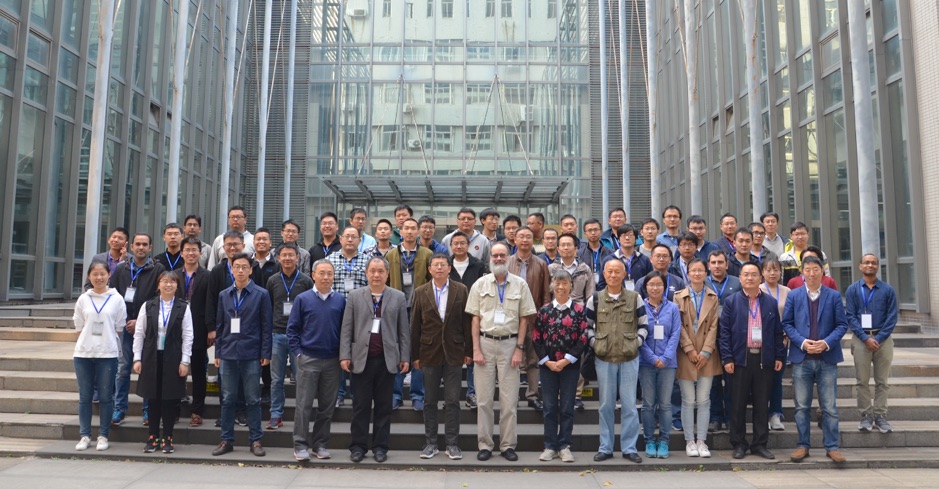December 2018
STAR Newsletter
December 2018 edition
Contents:
A note from the editor: as a collaboration-wide communication tool, this newsletter is set up to allow comments (subject to moderation against abuse), and all STAR Collaborators are welcome to do so! Please keep in mind that some content (including all comments) may be considered internal to the Collaboration and only accessible when logged into Drupal. Documentation is available here.
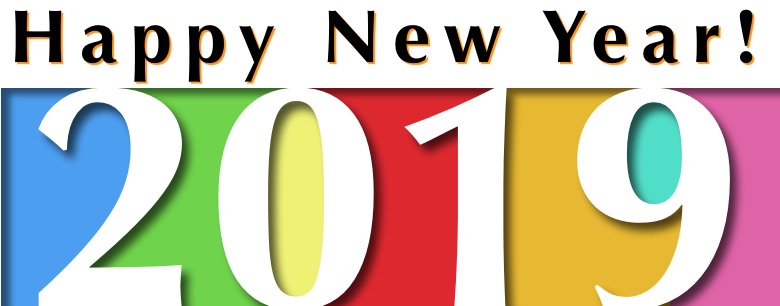
(Zhangbu Xu - Co-Spokesperson)
As we approach the end of year 2018, we wish every collaborator a Happy Holiday!
It has been a very busy couple of months. Following the complete installation of the 24 MWPC sectors, the TPC electronics (new and old) have been installed and are in the process of being tested. There are new features in the electronics LED lights which shows the spirit of a holiday season (see the STAR arts section below for Maria's video, or Flemming's video in his You do not have access to view this node at the STAR Analysis Meeting or his FaceBook post). Installation of the endcap TOF modules was completed on November 22nd. The project is part of FAIR Phase-0 program and a rare joint project between two collaborations. For details of the schedule and progress, see talks at Analysis Meeting. Both eTOF and iTPC are on schedule for the start of Run 19.
The preparation of Run 19 has been well underway. The shift sign-up started on December 18th and we still have quite a few open slots. Please continue to sign up if your institutions still have dues, and report any issues to Declan and/or the STAR Management team.
The Run 19 Trigger Board has been assembled with Prof. Dan Cebra as the chair. Thanks go to the following collaborators for their willingness to help the collaboration define and optimize the data-taking strategy for Run 19:
Rosi Reed - EPD trigger liason
Jiangyong Jia - Bulk Corr Convener
Chi Yang - LFS-UPC Convener and iTPC expert
Hongwei Ke - HLT expert
Rongrong Ma - MTD/muon trigger
Gene Van Buren - Software & Computing + TPC Calibrations
Bill Christie - General Expertise everywhere
Eleanor Judd - Trigger Software
Hank Crawford - Trigger Hardware
Jeff Langraf - DAQ/TRG
Akio Agawa - Trigger hardware
Geary Eppley - bTOF/eTOF
Declan Keane - BES Physics
J.H. Lee - Continuity of Leadership
Daniel Brandenberg - VPD
Daniel Cebra - BES/FXT Physics
The Trigger Board discussion is an open forum (and email list) and everyone is welcome to participate in the weekly discussions.
We would also like to thank the following people for taking the task of Period Coordinators:
| February 14 - February 28 : | Nihar Sahoo (TAMU) |
| February 28 - March 21 : | Dan Cebra (UCD) |
| March 21 - April 18 : | Irakli Chakaberia (KSU) |
| April 18 - May 2 : | Isaac Upsal (SDU) |
| May 2 - May 16 : | Wlodek Guryn (BNL) |
| May 16 - May 30 : | Sooraj Radhakrishnan (LBL) |
| May 30 - June 13 : | Gary Westfall (MSU) |
| June 13 - June 27 : | Neha Shah (SINAP/iiTP) |
| June 27 - July 15 : | Chitrasen Jena (BNL/IISER) |
Given that the low-energy electron cooling (LEReC) is crucial for our BES-II program and substantial dedicated time is necessary for its commissioning in Run 19, we had a meeting with C-AD and arrived at an expected Physics and LEReC (dedicated time) start-up schedule and time-sharing:
| January 2 : | RHIC partial cooldown |
| January 8 : | STAR cosmic ray data-taking starts |
| February 18 : | RHIC full cooldown to 4 K |
| February 19 - 21 : | RHIC setup at 9.8 and 3.85 GeV/n |
| February 21 - 27 : | Physics setup |
| (tentative) February 28 : | first LEReC dedicated time block with ion beam (12 hours) |
| July 15 : | end of Run 19 |
A very successful review of the forward upgrade was conducted by BNL. The schedule and talks are available here. The final committee review report is also available. Subsequently, BNL and DOE have endorsed the project, and a support letter was sent to Indiana University to accompany the Forward Calorimeter System proposal to NSF. We would like to take this opportunity to thank all the collaborators who have contributed to this success and congratulate the forward upgrade team for a job well done. The team understands that the schedule is tight and the resources from multiple funds have to be well coordinated. Since the proposal was put in place in the 2010 decadal plan, it has gone a long way to reach this point.
Year 2018 marks the highest level of STAR scientific journal publication with 17 papers! Congratulations to everyone on a job well done! On the same thread, 16 students successfully graduated from the program with PhD degrees; congratulations again to:
Kathryn Meehan (UCD)
Zaochen Ye (UIC)
Niseem Magdy Abdelwahab (SBU)
Dzmitry Makatum (CTU)
Christopher Dilks (PSU)
Fuwang Shen (SDU)
Jincheng Mei (SDU)
Suvarna Ramachandran (UKY)
James Brandenburg (Rice)
Zhen Liu (USTC)
Shenghui Zhang (USTC)
Maowu Nie (SINAP)
Isaac Upsal (OSU)
John Campbell (OSU)
Leszek Kosarzewski (WUT)
Toshihito Nonaka (Tsukuba)
STAR Regional Meeting Recap
(Yifei Zhang - USTC, program committee co-chair)
The STAR Regional Meeting, Workshop on BES-II and Detector Upgrades, was held at University of Science and Technology of China (USTC), Hefei, China on Oct. 31st – Nov. 2nd, 2018. STAR spokesperson Zhangbu Xu gave an introduction for the STAR upgrade plans. The following sessions included iTPC production and commissioning status, EPD construction and electronics status, eTOF construction and performance, sTGC and forward tracking status. BES-II related physics and data analysis progress from the region and future physics program were discussed as well in this meeting. On Nov. 1st, after the meeting in the afternoon, participants were given a tour of USTC SKLPDE Lab where the modules of STAR TOF, MTD, and CBM TOF were exhibited. Attendees had the opportunity to look around the micro-pattern gas detector lab and electronics lab as well. Below are some photographs from the events.
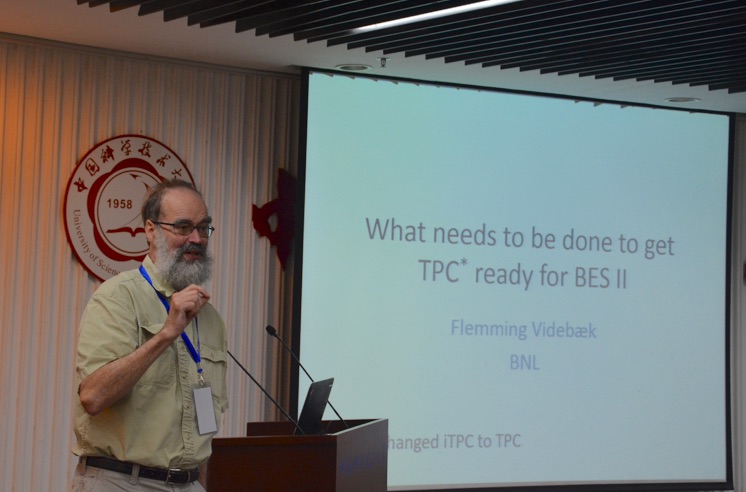
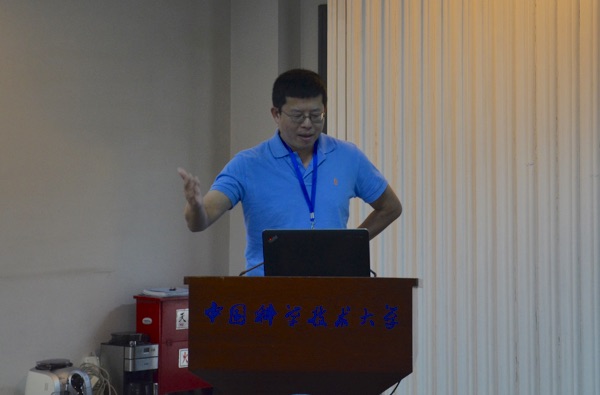
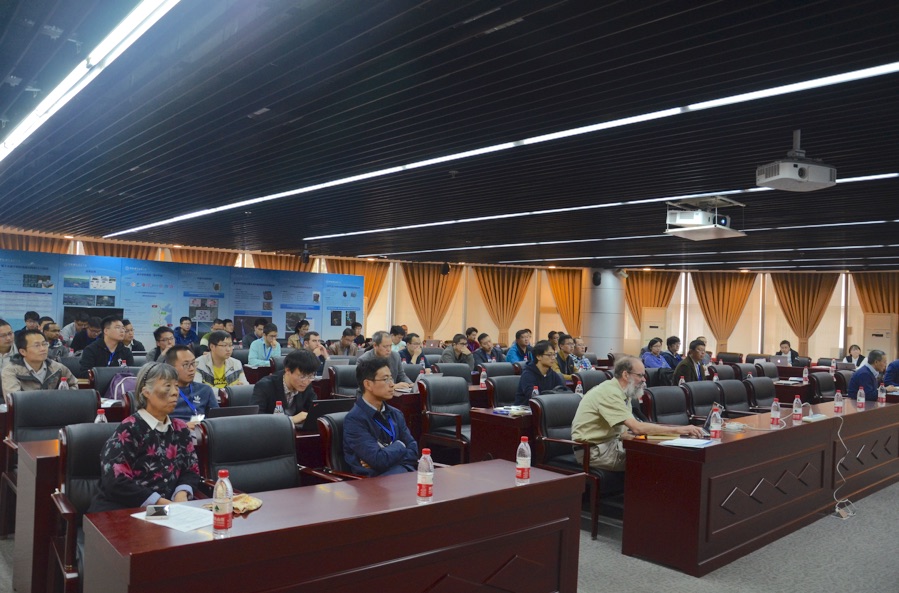
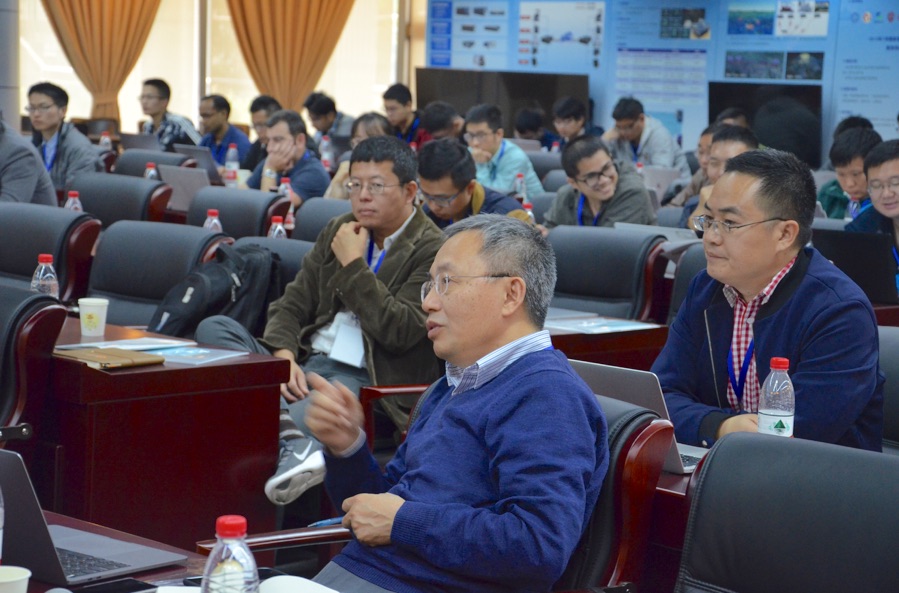
Above: Scenes from the meeting sessions
Below: Touring the USTC laboratories
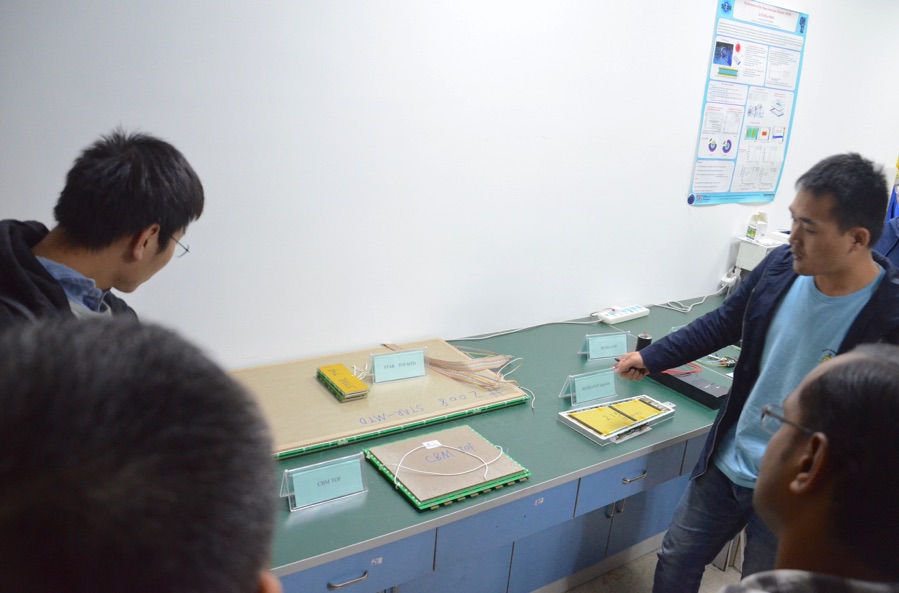
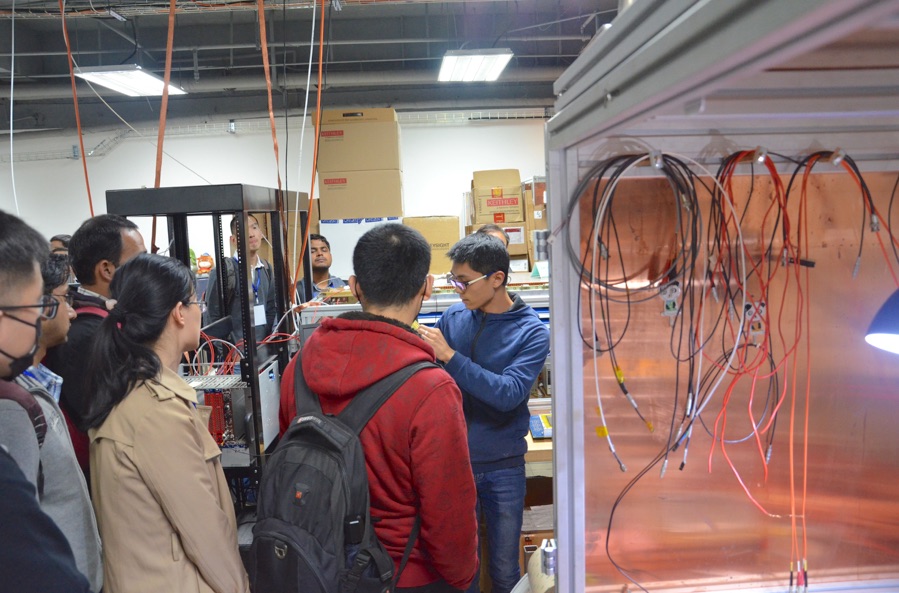
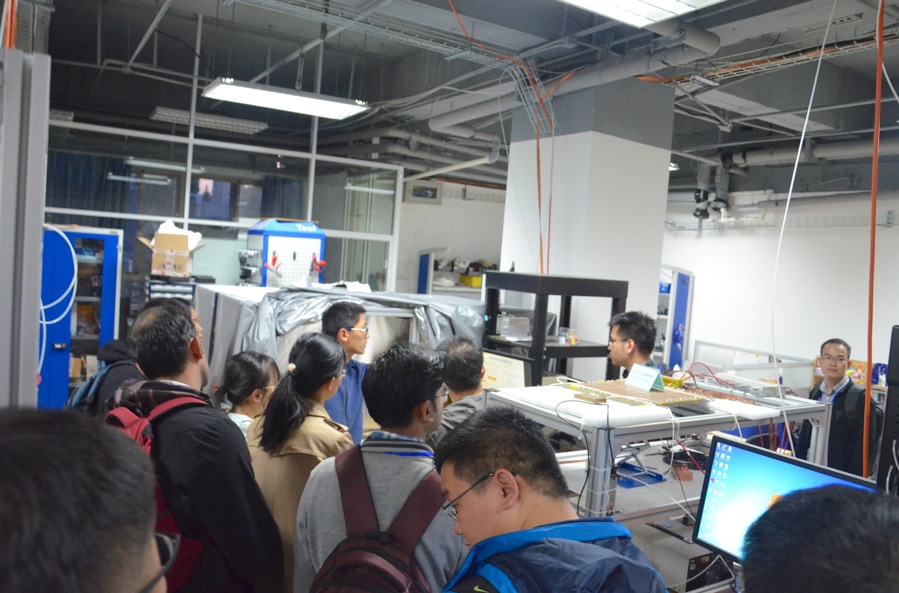

STAR Analysis Meeting Recap
(Zhenyu Ye - Physics Analysis Coordinator)
STAR held an Analysis Meeting at BNL on December 12th-14th, following a joint STAR-CBM workshop on December 11th (both agendas are online). Topics with common interests from both collaborations were discussed at the workshop, including an overview of CBM software and physics, STAR eTOF, and the usage of KFParticle with STAR data. The first day of the Analysis Meeting was used for plenary session discussions, where reports were presented on experimental status and plans for BES-II and beyond, iTPC and eTOF upgrade projects, software & computing, and physics data analyses. The last two days of the Analysis Meeting were devoted to parallel session discussions, with sixty-five talks spread over all the Physics Working Groups. The Analysis Meeting marked the end of an excellent year for STAR physics analyses in which seventeen articles were published in peer reviewed journals. It will also mark the start of another exciting year where the new data taken in 2017 and 2018 will be analyzed and pushed towards publication, and the BES-II data-taking will get started.
STAR arts
(Maria Żurek - LBNL)
This is a feature for Collaborators to contribute something creative/artistic that relates to STAR. This could be a really cool looking graph generated from some analysis, or a striking photograph. The idea is akin to the "Back Scatter" feature of Physics Today (example), or the Picture of the Month of CERN Courier (example). Please feel free to have fun with this and consider making a contribution yourself for the next edition!
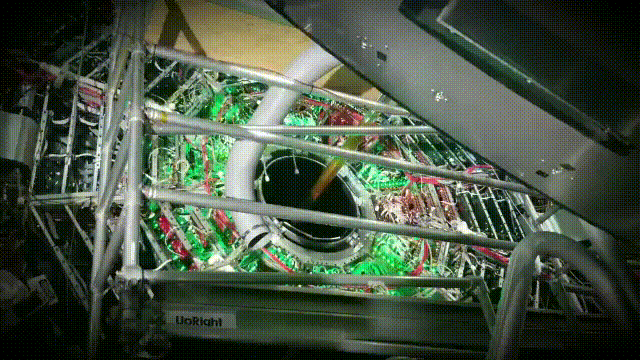
After installation of the new iTPC readout electronics: the STAR detector in holiday mode twinkling red and green (see Maria's Twitter post)
